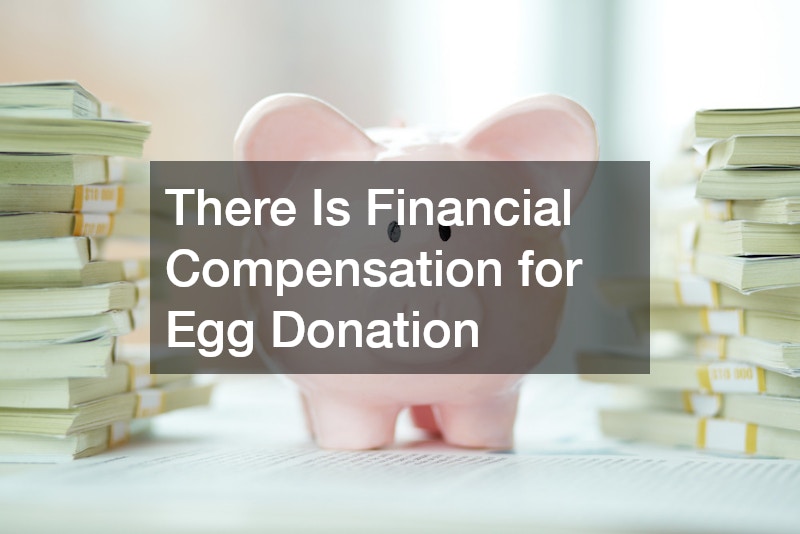Egg donation is an opportunity for individuals to help others build their families while receiving compensation for their contribution. If you’re considering selling your eggs to a cryobank, it’s important to understand the process, requirements, potential risks, and benefits before making a decision. Here’s everything you need to know about becoming an egg donor.
Who Can Donate Eggs?
Cryobanks and fertility clinics have strict eligibility criteria for egg donors. While requirements vary between organizations, most include:
Age Restrictions: Typically, donors must be between 21 and 31 years old, as younger eggs tend to have a higher success rate in fertility treatments.
Health Requirements: Donors must be in good physical and mental health, free of genetic disorders, and have no history of substance abuse.
BMI Guidelines: Many clinics require a healthy Body Mass Index (BMI) to reduce risks associated with egg retrieval.
Regular Menstrual Cycles: A stable cycle indicates reproductive health, which improves the chances of successful egg retrieval.
No Smoking or Drug Use: Substance use can negatively affect egg quality.
Willingness to Undergo Medical Screening: Egg donors must complete a series of tests, including genetic screening, blood work, and ultrasounds.
The Egg Donation Process
Selling your eggs to a cryobank is a multi-step process that includes extensive medical and psychological screenings, hormonal treatments, and a minor surgical procedure. Here’s a breakdown of what to expect:
1. Application and Screening
Once you apply to a cryobank, you’ll need to undergo a series of medical, psychological, and genetic evaluations. This ensures that your eggs are viable and that you’re mentally prepared for the process. Some clinics also require donors to provide detailed family medical histories.
2. Legal and Ethical Considerations
Before donating, you’ll sign a legal contract outlining your rights and responsibilities. Egg donation is typically anonymous, but some donors agree to open donation arrangements, where recipients and donors can exchange limited or full contact details.
3. Hormonal Stimulation
Once approved, you’ll begin hormone injections for about two weeks to stimulate your ovaries to produce multiple eggs. During this time, you’ll undergo regular blood tests and ultrasounds to monitor your body’s response.
4. Egg Retrieval Procedure
Eggs are retrieved through a minor surgical procedure called transvaginal ultrasound aspiration. A doctor will use a needle to extract the eggs while you are under sedation. The procedure is typically quick, lasting about 20–30 minutes, with mild cramping afterward.
5. Recovery
After the procedure, most donors experience mild bloating and discomfort, but recovery is generally fast. Clinics usually recommend resting for a day or two before resuming normal activities.
Compensation for Egg Donation
One of the primary incentives for egg donation is financial compensation. Payment varies depending on the cryobank, geographic location, and donor characteristics.
On average, donors can expect to receive between $5,000 and $10,000 per cycle, with some earning more if they are repeat donors or meet specific criteria (such as high-demand genetic traits).
Potential Risks and Side Effects
While egg donation is generally safe, there are potential risks:
Ovarian Hyperstimulation Syndrome (OHSS): A rare but serious condition where the ovaries become swollen and painful due to excessive hormone stimulation.
Mood Changes and Discomfort: Hormonal medications can cause temporary mood swings, headaches, and bloating.
Surgical Risks: As with any medical procedure, there’s a small risk of infection or complications during egg retrieval.
Most side effects are mild and resolve quickly, but donors should always discuss concerns with their doctor.
The Difference Between Egg Donation and Surrogacy
Many people confuse egg donation with surrogacy. While egg donors contribute genetic material, they do not carry the pregnancy. Surrogate mothers, on the other hand, carry and deliver a baby for intended parents.
According to Elevate Baby, you must be between the ages of 21 and 45 to become a surrogate mother. Egg donors, however, must typically be younger due to the decline in egg quality with age.
Emotional Considerations
Egg donation is not just a physical process—it can be an emotional one as well. While some donors feel fulfilled knowing they’ve helped others conceive, others may experience mixed emotions about donating their genetic material. It’s important to take time to reflect on your motivations and consult with a mental health professional if needed.
The choice to sell your eggs to a cryobank is a deeply personal decision that comes with both financial and emotional considerations. While the process is safe for most individuals, it’s essential to fully understand the medical, legal, and ethical aspects before proceeding. If you’re in good health, meet the eligibility criteria, and feel comfortable with the process, egg donation can be a rewarding experience that helps others achieve their dreams of parenthood.
.


